Listening to the audio only of Chris Watts on the @Murdersesh podcast, a few elements stuck out that I hadn’t noticed before.
WATTS [Sighs]: Unless something develops in the next hours or so, I’m hoping that someone sees something…or somebody knows something…and…comes forward.
Now, in the Scott Peterson, Casey Anthony and Madeleine McCann cases, that’s exactly how things played out. There was a massive PR blitz, and the well-meaning public soon began to overwhelm authorities with sightings. Dozens, then hundreds, then thousands of tips.
If you want a case to become unsolved, this is how you want it to go – the cops running around in circles after a seemingly infinite number of tips, the public’s eyes peeled for kidnappers and abductors but none of them leading anywhere.
It’s no wonder then that this was Chris Watts’ hope, that people would soon start calling in, saying they thought they saw Bella in Boulder, or they glimpsed a pregnant woman who looked like Shan’ann boarding a flight at Denver airport. Every tip, every sighting would draw resources, suspicion and scrutiny away from him. As long as a dead person is missing, there’s reasonable doubt that there’s no murderer, and no murder committed. And the longer a person who is dead is thought of as missing, the more doubt has to be dealt with at trial.
Well, the missing person narrative never got off the ground in this case.
When the reporter asks him what’s the worst part, Chris Watts leaks an interesting disclosure.
WATTS: Not knowing. If they’re safe or…if they’re in trouble. Like…there’s just that…that variable…like I’m not sure…I mean I can’t do anything from where I’m at. Like I’m not sure if they’re safe somewhere, just [voice rises a notch] huddled somewhere. Or…if they’re in trouble. And knowing that, if they could be in trouble it’s [stutters] it’s earth-shattering right now. And it doesn’t feel like it’s real.
Taking out the bold elements and putting them together we get this:
I can’t do anything from where I’m at.
they’re safe somewhere, just huddled somewhere.
if they could be in trouble…it doesn’t feel like it’s real.
We have to remember, for a murderer, “safe” actually means what’s safe for him. So in this sense, safe means they are huddled up somewhere out of sight.. And they were huddled up somewhere out of sight. Also, the claim that they might be in trouble, not mortal danger from the public’s perspective [which they were], but trouble in the sense that they’d gone to be with a friend, doesn’t feel like it’s real because it isn’t real.
Consider how the psychology is tangled up here. Would they really be in trouble if Shan’ann had gone to see a friend to get away from him? That scenario was really the best case scenario during the missing phase, and yet Chris Watts frames it as trouble.
The mirror to this fictional trouble is obviously his own very real, but very secret mistress, and him huddling up somewhere with her, vanishing every now and then.
For me the most significant disclosure is the general statement of intent. I think this was true not just the day after the crime, but in the days, weeks and months before the crime:
I can’t do anything from where I’m at.
Returning to the original question, consider it from Chris Watts’ perspective, and a motive perspective. What was the worst part for you, living in that house with that family.
Not knowing. If I’m safe or…if I’m in trouble.
And then, at 10:46 in the Soundcloud audio, a fantastic probing question from the reporter.
REPORTER: The weird part of all this, it sounds like everything’s been locked up. There’s no signs of them leaving the house.
WATTS [Softly]: No. No…like…we have a camera there…the neighbor has a camera [stutters] I-I mean everything was…everything’s checked out.
What follows next is a little indistinct and inaudible, but the reporter asks about the neighborhood cameras. Chris Watts answers that the camera is associated with the front doorbell.
WATTS: The neighbor has one right there.
REPORTER: Were all the doors around the house locked?
WATTS: The front door was locked, the garage door was…unlocked…but that-that’s normal for…like, when she comes in the house she leaves it unlocked so she come in and out just in case [inaudible] get in the garage door. But the back sliding door was locked as well.
REPORTER: So how would she have left the house…?
WATTS: I-I [laughs]…I don wanna put anything out there….s-suspecting someone pulled in the back and…because we have a driveway back there…from the new town homes. But [laughs] it’s so hard to tell. There’s no cameras in the back yard or anything like that, it’s really hard to even…suspect anything right now, as far as how she could’ve left….or if someone came and picked her up, or if someone came and took her.
This last answer from Watts is revealing. He doesn’t want to put anything out there, but then he does. He uses the word “suspect” twice in an unusually long answer from him. He uses the word “back”, referring to the back entrance three times in his answer. He suggests Shan’ann may have exited through the back entrance, unseen, and opens the door to someone who picked her up as arranged, or someone who came and took her [perhaps secretly, against her will]. He’s clear that if someone came around the back, no one would have seen her, and no cameras would have recorded it either.
Two aspects are worth highlighting here.
- The garage door wasn’t unlocked.

- In an earlier answer, Watts uses a biggish word for him, the word “variable”. This word doesn’t really fit with his casual locution. It’s a technical term that has more to do with the readings an operator would deal with on site, than with a criminal investigation. In studying dozens of high profile cases, I’m not sure I’ve come across anyone else using it, whether by suspect or investigator. We know what he means, but it’s an extremely distancing word for a husband to use to assess whether he thinks his family has come to harm or not.
If Chris Watts had left the back door open or unlocked, there would be a little additional doubt supporting his case. Ditto the garage door. So why didn’t he?
One reason could be that he feared losing Deeter. Actually leaving a door open meant the dog could be running around outside drawing attention, when that’s the last thing Chris Watts wanted to do. He wanted to buy time.

I reported on this aspect in TWO FACE, that Deeter was the only survivor of the annihilation, but he nevertheless presented a problem. Where to put him, and who would look after him with the whole family gone? Putting him outside could send various signals to the neighbors that the murderer didn’t want to send, and worse, might have the neighbors come knocking, as Nickole Utoft Atkinson ultimately did.
According to CrimeOnline:
The dog reportedly got the attention of neighbors frequently, with Charyle Hollowell telling reporters that he “made more noise than the family did.”
On the day the family disappeared, however, the barking was different. “It was like he was being punished or hurt or something,” the neighbor said. He was just howling. Because we had a dog, I said, ‘What the hell is that all about? So we called the police and asked them to check on the dog. And it turned out that he was OK. They did a wellness check on the dog.”
So if Deeter had been left outside, or a door left open to allow him to run around, he was the kind of dog that could bark or howl when left alone, and the noise was liable to attract nosy neighbors. An unlocked entrance could also mean neighbors entering the home early [since Watts left before dawn] and finding no one there.
In conclusion, the gamechanger Chris Watts didn’t expect was that, thanks to Nickole Utoft Atkinson, the cops arrived at 2825 Saratoga Trail before he did. Because of this, they were able to establish immediately that the entire house was secure, despite Chris Watts’ claims that the garage door wasn’t locked.
Had the cops arrived later and “discovered” any door or window unlocked, open or broken, or had Chris Watts told them he found a door unlocked or open, suspicion would have shifted from the inside to the outside of the house, and Chris Watts would have been home free.
All he had to do to create this impression of leaving, was to leave a door open somewhere. Yet he couldn’t bear to leave anything unlocked, or to break or damage a window or door. In my opinion, what this reveals is Chris Watts’ unusual attachment to the house.
Elsewhere in his interview he says: “This house is not the same…” We take it to mean that it wasn’t the same with everyone gone, but how he may have meant it, was with everyone in it, the house wasn’t the same, it was no longer a home if he had to share it with them, and for some reason, it didn’t hold as much value for him. And isn’t that what it came down to ultimately, losing his family or the house? Well, he made his choice.



























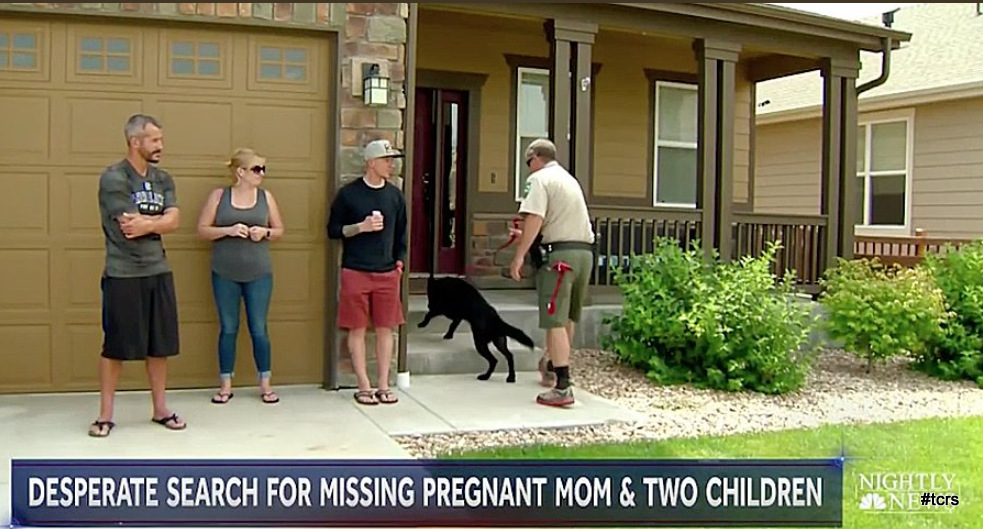




















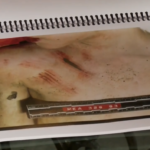



















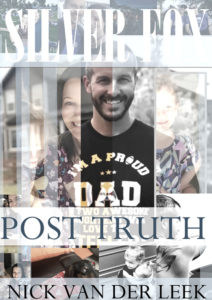
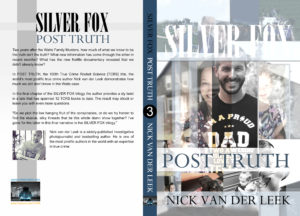



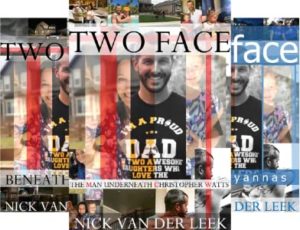





Recent Comments